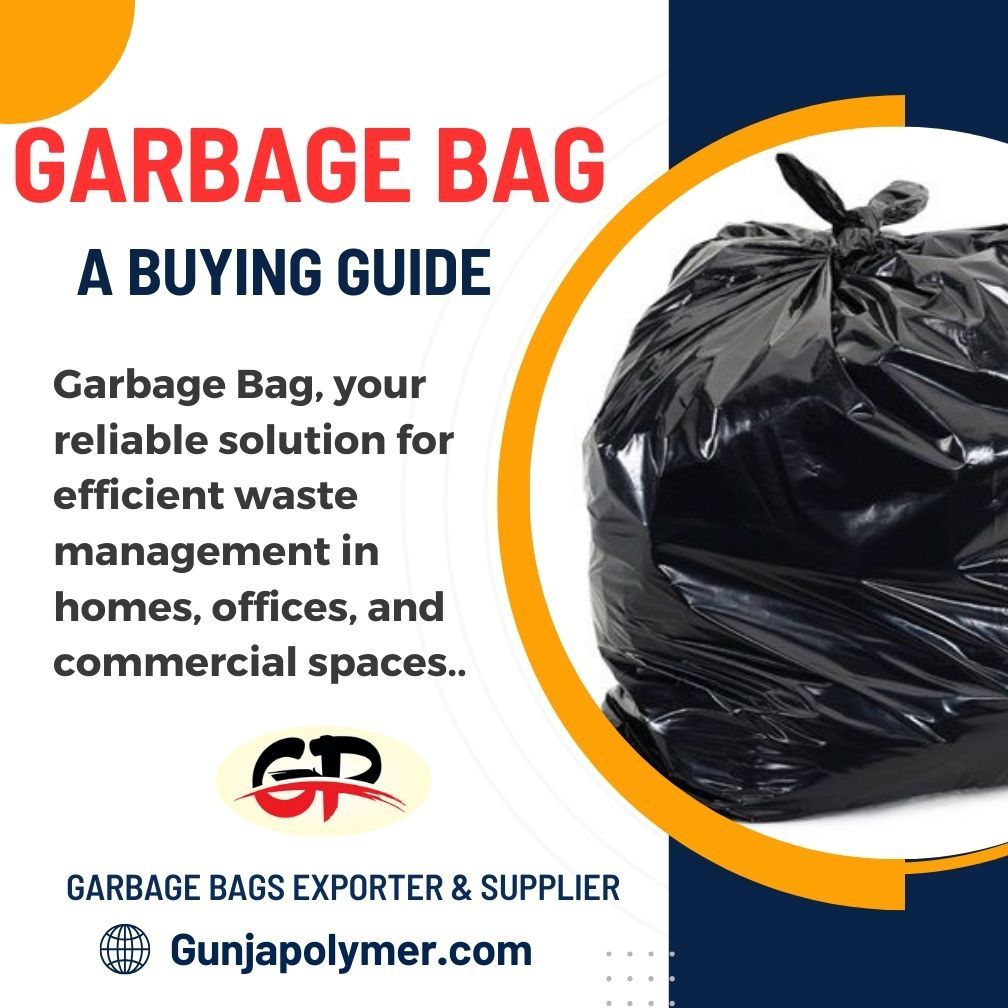Garbage Bag Trash Bag A Buying Guide
Garbage Bag-Trash Bag A Buying Guide
A garbage bag, also known as a trash bag, rubbish bag, or bin bag, is a disposable bag designed for collecting and containing household or commercial waste. These bags are typically made from plastic materials such as polyethylene or polypropylene and come in various sizes, thicknesses, and colors.
1. Regular Trash Bags: These are the standard garbage bags used for everyday household waste disposal. They come in various sizes and thicknesses to accommodate different amounts of trash.
2. Heavy-Duty Trash Bags: These are thicker and more durable than regular trash bags, designed to handle heavier loads without tearing. They are often used for construction debris, yard waste, or any other heavy or sharp objects.
3. Biodegradable Trash Bags: Made from materials that break down more easily in landfills, biodegradable trash bags are environmentally friendly options for waste disposal. They are suitable for organic waste or any situation where reducing environmental impact is a priority.
4. Compostable Trash Bags: Similar to biodegradable bags, compostable trash bags are made from materials that can break down into compost. They are commonly used for collecting food scraps and other compostable materials.
5. Scented Trash Bags: These bags are infused with scents to help mask unpleasant odors from trash. They are often used in kitchens or other areas where food waste can cause strong smells.
6. Drawstring Trash Bags: These bags have built-in drawstrings for easy tying and carrying. They are convenient for securing the bag's contents and transporting them to the curb or dumpster.
7. Recycling Bags: Designed specifically for recyclable materials, these bags are usually color-coded or labeled to distinguish them from regular trash bags. They help streamline the recycling process by keeping materials separate and identifiable.
8. Medical Waste Bags: These bags are specially designed to handle biohazardous materials such as used medical supplies, bandages, or other potentially infectious waste. They are often required to meet specific safety standards for disposal.
9. Odor-Control Trash Bags: Similar to scented bags, odor-control trash bags are designed to neutralize or reduce unpleasant odors from garbage. They often contain additives or coatings that absorb or mask smells.
10. Clear Trash Bags: Transparent or semi-transparent, these bags are commonly used in commercial or industrial settings where visual inspection of the contents is necessary, such as security checkpoints or waste sorting facilities.
11. Tall Kitchen Bags: These are typically smaller-sized bags designed to fit into kitchen trash cans. They are often scented and have drawstrings for easy closure and removal.
12. Lawn and Leaf Bags: These large, durable bags are specifically designed for collecting yard waste such as grass clippings, leaves, branches, and other outdoor debris.
These are just a few examples of the many types of garbage bags available, each serving specific needs and preferences for waste disposal.
Tips to Choose the Right Garbage Bag
- Consider Capacity: Determine the amount of trash you typically generate to choose a bag size that accommodates your waste volume without being too small or too large.
- Check Strength and Thickness: If you regularly dispose of heavy or sharp objects, opt for heavy-duty bags with higher thickness or strength ratings to prevent tears and leaks.
- Purpose: Identify the type of waste you'll be disposing of. For regular household waste, standard trash bags may suffice, while yard waste may require thicker lawn and leaf bags. Biohazardous materials, such as medical waste, should be disposed of in specialized bags designed for such purpose
- Environmental Considerations: If you're concerned about reducing your environmental impact, choose biodegradable or compostable bags made from eco-friendly materials.
- Odor Control: If odors are a concern, select bags with built-in odor-control features or opt for scented varieties that help mask unpleasant smells.
- Closure Mechanism: Decide whether you prefer bags with drawstrings for easy tying and carrying or twist-tie closures for a more secure seal.
- Transparency: Clear bags allow for easy visual inspection of contents, which can be helpful for security purposes or waste sorting. However, opaque bags may be preferred for privacy reasons.
- Recyclability: Choose bags that are compatible with your local recycling program to ensure proper disposal and minimize environmental impact.
- Cost: Consider your budget and the cost-effectiveness of different bag options. While higher-quality bags may be more expensive upfront, they can prevent leaks and tears, ultimately saving you money in the long run.
- Brand Reputation: Opt for reputable brands known for producing durable and reliable garbage bags to ensure quality and performance.
By considering these factors, you can select the right garbage bag that meets your specific needs and preferences for waste disposal.

